In 1913, African-American New Yorkers celebrated the fiftieth anniversary of Lincoln’s Emancipation Proclamation with a ten day exposition. Led by W.E.B. DuBois and members of the New York State Commission, the exposition served the purpose of uplifting African-Americans and refuting the violence, poverty, and stereotypes promulgated by the mainstream. The exposition mirrored those held in Paris or St. Louis or Chicago in scope and pageantry with its “fourteen classes of exhibits, including African industries, health and physique, labor and house service, trades and business, agriculture, professions, education, religion, and women and social uplift.” There was also a historical pageant held during four different days with “250 actors in full costume and orchestra music composed especially for the occasion by Major Charles Young, of the United States Army, and others.”
In celebration, esteemed poet James Weldon Johnson composed a poem that was published in the New York Times:
On the Fiftieth Anniversary of the Signing of the Emancipation Proclamation.
O brothers mine, to-day we stand
Where half a century sweeps our ken,
Since God, through Lincoln’s ready hand,
Struck off our bonds and made us men.
Just fifty years–a winter’s day–
As runs the history of a race;
Yet, as we look back o’er the way,
How distant seems our starting place!
Look farther back! Three centuries!
To where a naked, shivering score,
Snatched from their haunts across the seas,
Stood, wild-eyed, on Virginia’s shore.
Far, far the way that we have trod,
From heathen kraals and jungle dens,
To freedmen, freemen, sons of God,
Americans and Citizens.
A part of His unknown design,
We’ve lived within a mighty age;
And we have helped to write a line
On history’s most wondrous page.
A few black bondmen strewn along
The borders of our eastern coast,
Now grown a race, ten million strong,
An upward, onward, marching host.
Then let us here erect a stone,
To mark the place, to mark the time;
A witness to God’s mercies shown,
A pledge to hold this day sublime.
And let that stone an altar be,
Whereon thanksgivings we may lay
Where we, in deep humility,
For faith and strength renewed may pray.
With open hearts ask from above
New zeal, new courage and new pow’rs,
That we may grow more worthy of
This country and this land of ours.
For never let the thought arise
That we are here on sufferance bare;
Outcasts, asylumed ‘neath these skies,
And aliens without part or share.
This land is ours by right of birth,
This land is ours by right of toil;
We helped to turn its virgin earth,
Our sweat is in its fruitful soil.
Where once the tangled forest stood,–
Where flourished once rank weed and thorn,–
Behold the path-traced, peaceful wood,
The cotton white, the yellow corn.
To gain these fruits that have been earned,
To hold these fields that have been won,
Our arms have strained, our backs have burned,
Bent bare beneath a ruthless sun.
That Banner which is now the type
Of victory on field and flood–
Remember, its first crimson stripe
Was dyed by Attucks’ willing blood.
And never yet has come the cry–
When that fair flag has been assailed–
For men to do, for men to die,
That we have faltered or have failed.
We’ve helped to bear it, rent and torn,
Through many a hot-breath’d battle breeze
Held in our hands, it has been borne
And planted far across the seas.
And never yet, –O haughty Land,
Let us, at least, for this be praised–
Has one black, treason-guided hand
Ever against that flag been raised.
Then should we speak but servile words,
Or shall we hang our heads in shame?
Stand back of new-come foreign hordes,
And fear our heritage to claim?
No! stand erect and without fear,
And for our foes let this suffice–
We’ve bought a rightful sonship here,
And we have more than paid the price.
And yet, my brothers, well I know
The tethered feet, the pinioned wings,
The spirit bowed beneath the blow,
The heart grown faint from wounds and stings;
The staggering force of brutish might,
That strikes and leaves us stunned and dazed;
The long, vain waiting through the night
To hear some voice for justice raised.
Full well I know the hour when hope
Sinks dead, and ’round us everywhere
Hangs stifling darkness, and we grope
With hands uplifted in despair.
Courage! Look out, beyond, and see
The far horizon’s beckoning span!
Faith in your God-known destiny!
We are a part of some great plan.
Because the tongues of Garrison
And Phillips now are cold in death,
Think you their work can be undone?
Or quenched the fires lit by their breath?
Think you that John Brown’s spirit stops?
That Lovejoy was but idly slain?
Or do you think those precious drops
From Lincoln’s heart were shed in vain?
That for which millions prayed and sighed,
That for which tens of thousands fought,
For which so many freely died,
God cannot let it come to naught.
Further Reading:
November 1913 issue of The Crisis
Festivals of Freedom:
Meaning and Memory in African American Emancipation Celebrations, 1808-1915 by Mitch Kachun

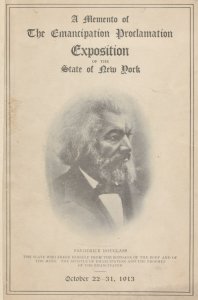
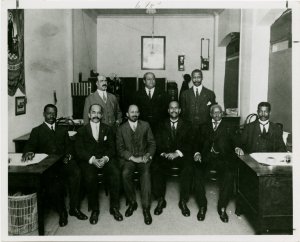
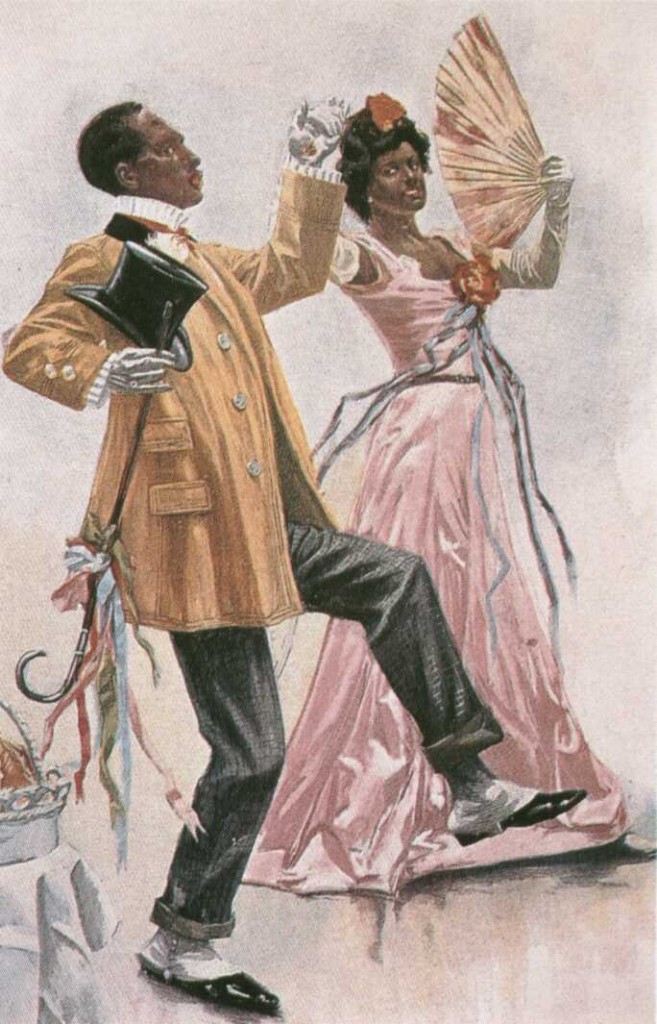
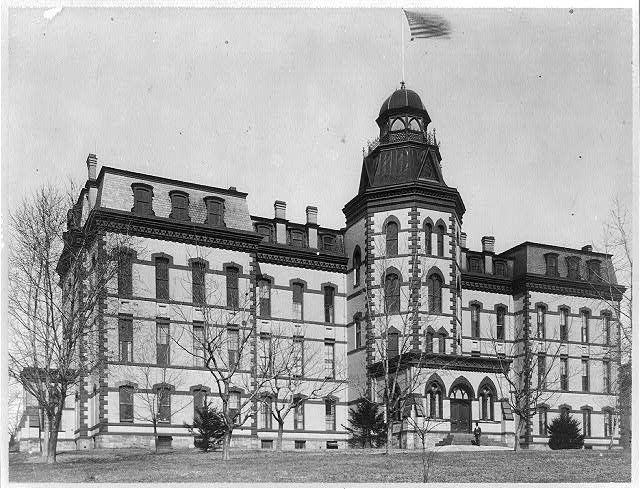
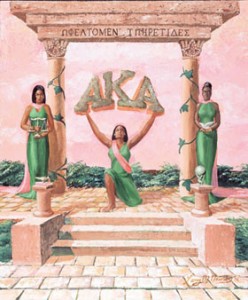
Very interesting!
Great work in sharing this……my favourite lady of colour who became a millionaire ( about this time ) was Maadame CJ Walker…..I was in a show about her.
“…celebrated the fiftieth anniversary of Lincoln’s Emancipation Proclamation with a ten exposition.”
What’s a “ten” exposition?
@NJGill: sorry about that–a typo. “ten day” exposition!